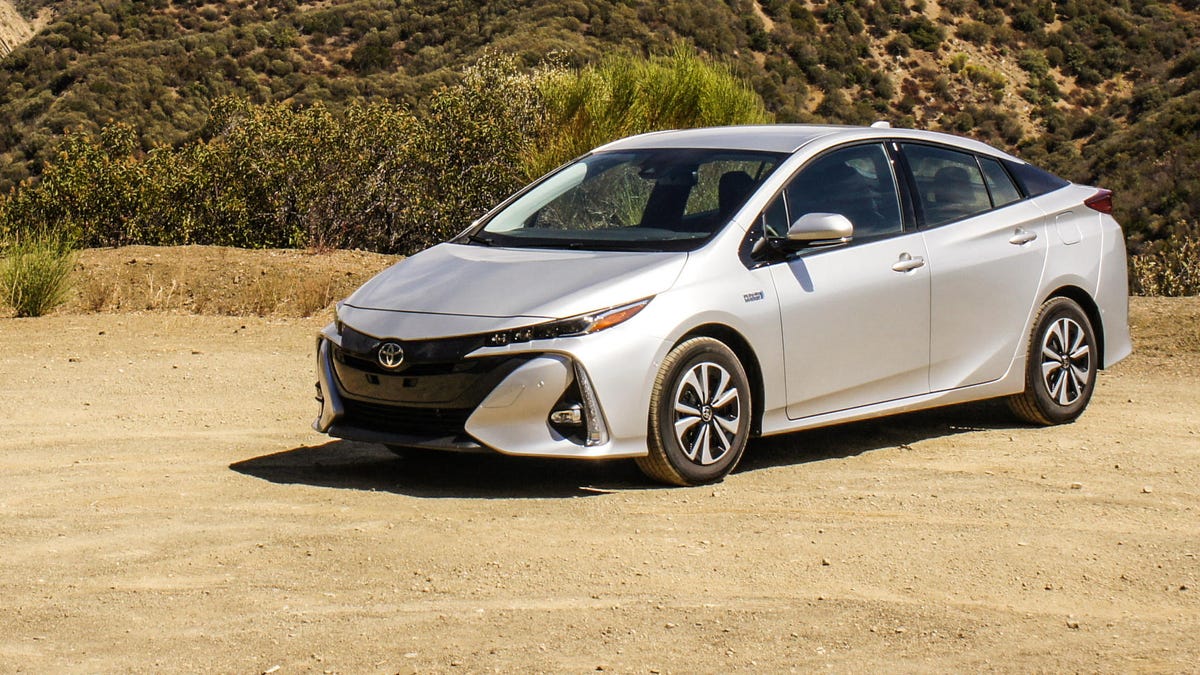We could finally see an all-electric Prius
Toyota's late to the lithium-ion battery game, but the traditionally staid automaker is finally ready to embrace it.

Toyota's been using nickel-metal hydride batteries in its hybrids for nearly 20 years. Other automakers moved to newer lithium-ion batteries, leapfrogging the Japanese automaker. Now, Toyota's finally tamed the beast, which should help its lineup compete with a growing crowd of hybrids and electrics.
Toyota stuck with nickel-metal hydride batteries in its Prius and in other hybrid models largely due to cost and longevity concerns. But, thanks to help from supplier Panasonic, Toyota has finally embraced lithium-ion batteries, Reuters reports. It could set the stage for a full-on electric car, perhaps under the Prius name.
Right now, though, Toyota's not stretching itself too thin on lithium-ion tech. A majority of its hybrids still use the tried-and-true hydride battery, but the all-new Prius Prime plug-in has a lithium-ion pack that offers about 25 miles of all-electric range. A lithium-ion pack is offered on the 2016 Prius for the first time, as well, but it's not standard across the whole lineup. It's likely that Toyota's traditional hybrid lineup will move to lithium-ion technology as its current models age out of relevance.
Lithium-ion offers better power density and charging times than other types of automotive batteries, but cooling, manufacturing and design can still create a bad battery -- just ask Samsung how the Note 7 turned out.
"It's a tall order to develop a lithium-ion car battery which can perform reliably and safely for 10 years, or over hundreds of thousands of kilometers," said Koji Toyoshima, the Prius' chief engineer, talking to Reuters. "It's all about safety, safety, safety."
Part of Toyota's move towards lithium-ion technology comes from having better control over how batteries are manufactured and controlled in the pack. Toyota claims its batteries are built in conditions nearing semiconductor manufacturing. New pack-control technology better monitors temperature and individual battery cell quality, as well.
If there was ever a time to jump into lithium-ion batteries, it'd be now. The price of individual cells has dropped by 60 percent over the last five years, which allows automakers to spend more money on the battery's supporting technology. In addition, with so many automakers promising all-electric vehicles within the next few years, if Toyota doesn't start working toward that goal now, it'll be well behind the competition in just a few years' time.

